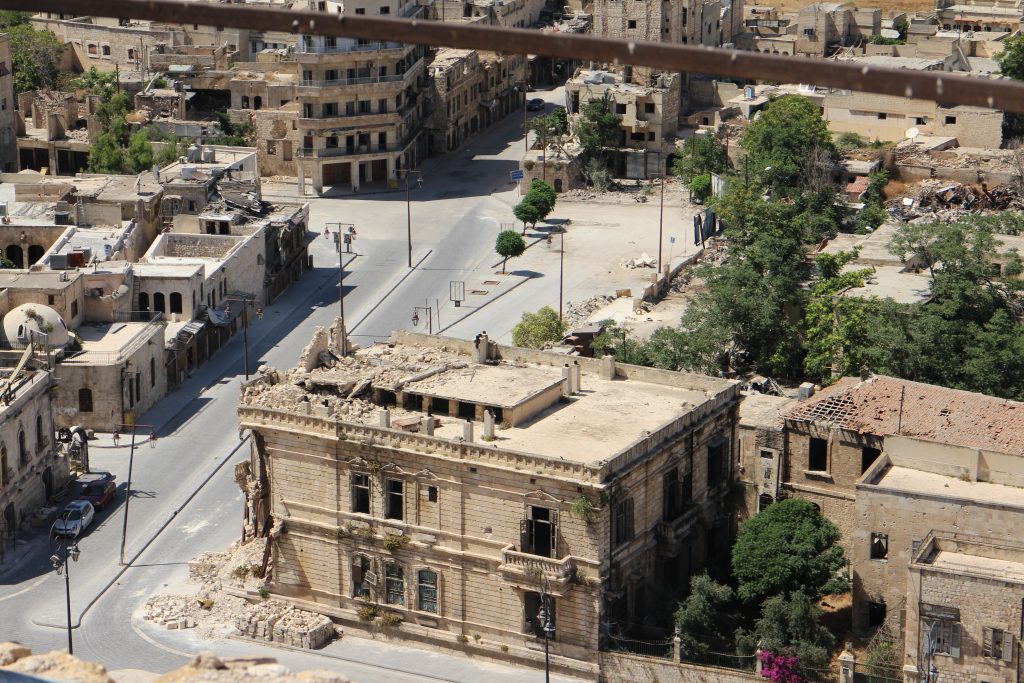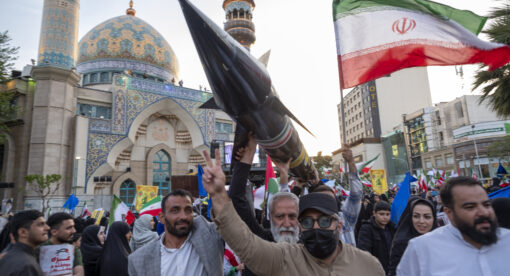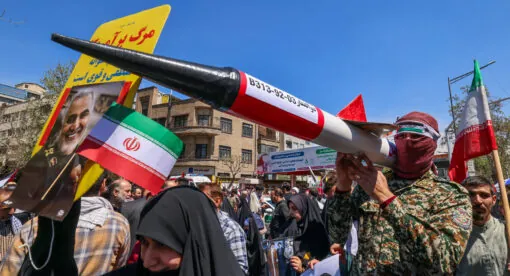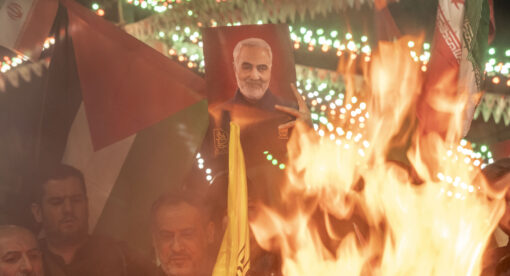The Syrian regime undoubtedly has won the war against its people. No serious attempts to bring down the regime exist today, and the last stronghold in northwestern Syria — dominated by Salafist-jihadists rather than ordinary locals — is almost on life support thanks to a shaky deal among Turkey, Russia, and Iran. But even though Bashar al-Assad’s regime has defeated its domestic political opponents, it may have forever lost Syria as a sovereign nation.
Right now, Assad controls about half of the country, and these regime-controlled areas are divided between Russia and Iran. Assad needs both of these outside powers to survive — Russia for international political heft and air power, and Iran for economic needs and the ability to hold and control territory. The fate of the regime and the country are now in the hands of foreign powers that have no interest in enabling the revival of a strong regime in Damascus that controls all of Syria.
The Evolution of Syria’s Dependence on Outsiders
When the Syrian revolution broke out in 2011, young people called for freedom, democracy, human rights, free speech, and an elected civil government rather than sectarian rule. Those demands reflected the desires of most of Syrian society. But the Assad regime sensed that those demands would practically mean putting an end to its grip on power and to the dominance of the military and business class that benefited from Assad’s rule.
The regime failed to put down the protests and rejected efforts to achieve national reconciliation, including international initiatives to reach a political solution that protected all sides. The regime continued with its policy of collective punishment, murder, siege, imprisonment, the use of internationally prohibited weapons, and other destructive tools to break the will of the people.
When it failed to achieve its objectives through the means available to it internally, the regime sought assistance from Iran. Tehran found the opportunity to consolidate its regional influence by controlling Syria after Iraq and Lebanon. Had Iran not intervened and the Assad regime collapsed, then Iran would have been cut off from Hezbollah, and the nascent pro-Iranian Shiite regime in Iraq would have become very vulnerable.
In late 2015, Aleppo fell to regime forces assisted by their allies, particularly the Iranians. This marked the real emergence of Iran’s agenda in Syria. Around the same time, Turkey started to increase its influence and presence in the northern part of Syria through Islamist opposition factions, particularly those affiliated with the Muslim Brotherhood. Meanwhile, Russia seized the chance to bolster its military presence on the Mediterranean.
In order to achieve their goals, it was necessary for these foreign powers to prolong the war, displace the population, and delay any political settlement proposed by the international community. Syria became a historic opportunity to build a long-term presence in the heart of the Middle East. The agreement that Turkey, Iran, and Russia signed after talks hosted by the Kazakhs in Astana is only a political and military mechanism that allows these three countries to share influence and extract the most benefits without a military clash among them.
Even when conflict occurs among Turkey, Russia, and Iran in Syria, it typically has been addressed without harming the balance among them. In fact, as the situation in Idlib shows, such conflict is often resolved at the expense of Syrians in the form of pressure and concessions to the other side.
In order to achieve its aims, each country involved in carving up Syria works in the areas in which it has influence. For instance, Iran flexed its sectarian muscle. Hussainiyat, or Shiite worship and education centers, started to proliferate in Syria. Shiite preachers swarmed the country, and Iran offered financial support to students in Syria who wished to travel to Iran. Families from Lebanon, Iraq, Afghanistan, and Pakistan were also encouraged to move into areas emptied of their original population. Turkey is providing infrastructure and services, such as banking, mail delivery, mobile services and electricity, to the northwestern part of Syria around Idlib and Afrin, where Islamist Sunni forces are dominant. Russia, meanwhile, wants to restructure the Syrian army and government and model them on Moscow’s.
And of course, the United States has a role in the Syrian situation. The U.S. alliance with a Kurdish military faction helped entrench the Kurdish presence in areas east of the Euphrates River under the umbrella of the international war against the Islamic State. Administrative, social, security, educational and economic services were built to facilitate what is essentially a Kurdish statelet. What the United States and its international allies call stabilization, the Kurds consider the building blocks of their own autonomous Kurdish enclave in the country.
The United States is also affected by the relationships among Turkey, Russia and Iran. Washington wants to fight the Islamic State and curtail Tehran’s influence. Washington supported Ankara against Moscow in the matter of the Idlib attack, but Turkey wants Russia to endorse a northeastern Syrian safe zone that will keep the U.S. influence at a minimum.
Foreign Powers Usurp Syrians’ Will
In Astana, Syrians from both the opposition and regime sides showed up as a formality. Opposition representatives were invited to legitimize the talks, while representatives of the regime were invited to give the impression of the legality of the discussions. No one told either side about the agreements among the three sponsors of the Astana process. Neither of the two Syrian sides signed any of the background papers (unpublished documents that detail agreements); they only signed the final communiqué.
Another example is the so-called Constitutional Committee. Each country involved in the Astana pact has chosen Syrian individuals who represent its interests and who have the right to block the membership of any person in the committee. Consequently, the outcome will naturally be a constitution that guarantees these countries political, geographical, and economic influence.
In the meantime, Arab efforts to preserve Syrian identity and sovereignty are ominously absent. They might not have the ability to intervene, but if Arab countries — especially the stable and powerful ones like Egypt and the Gulf states — do not pay close attention to these actions, no one will be spared from the long-term consequences of what is happening in Syria.
The foreign interference in Syria does not stop at economic destruction, displacement and genocide. Outsiders are putting an end to Syria as a functional country capable of rebuilding after the war. Moreover, these other countries are preempting the creation of a governing body that represents the interests of the Syrian people. With the absence of any prospect of a Syrian solution to the war, the social and religious damage caused by these countries could be irreversible. Syrian culture, politics and people will be controlled and shaped by international and regional forces that have no interest in the revival of the Syrian state.
Assad may have won the war, but he has also lost Syria as a country.
Bassam Barabandi is a former Syrian diplomat.
The views expressed in this article are those of the author and not an official policy or position of the Newlines Institute.







